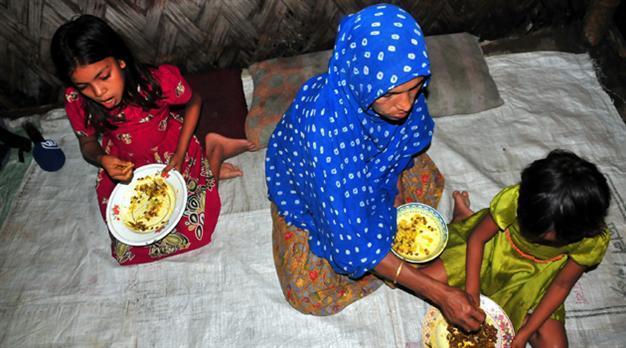Myanmarese government rejects crackdown on Muslims
YANGON, Myanmar - Agence France-Presse

Myanmarese women and a child, who fled into Bangladesh, are seen at a camp.
Myanmar told a United Nation rights envoy that it rejected accusations of abuse by security forces in the wake of communal unrest, after the U.N. raised fears of a crackdown on Muslims, yesterday.In a press conference attended by U.N. Special Rapporteur Tomas Ojea Quintana, Myanmar’s Foreign Minister said the government had exercised “maximum restraint” in bringing an end to the violence in western Rakhine State.
“As such, Myanmar strongly rejects the accusations made by some quarters that abuses and excessive use of force were made by the authorities in dealing with the situation,” Wunna Maung Lwin told reporters. He said the country “totally rejects the attempts by some quarters to politicize and internationalize this situation as a religious issue.”
Quintana added that he planned to visit Rakhine, where tens of thousands remain displaced by fighting that erupted between Buddhist and Muslim communities in early June. His trip comes just days after the U.N. warned that Muslim communities in Rakhine, particularly the Rohingya people, were being targeted by security forces.
Earlier this month Amnesty International warned of “credible reports” of abuses, including rape and unlawful killings, by both Rakhine Buddhists and the security forces. According to official figures, at least 77 people were killed in the unrest, including eight killed by security forces. Of the more than 60,000 displaced, Myanmar officials said the vast majority were Muslims.
Bot sides have accused each other over the attacks, which flared up following the rape and murder of a Buddhist woman and subsequent revenge killing of 10 Muslims on June 3 by a mob of ethnic Rakhines. Myanmar’s government considers the estimated 800,000 Rohingya in the country to be foreigners while many citizens see them as illegal immigrants from Bangladesh.
















